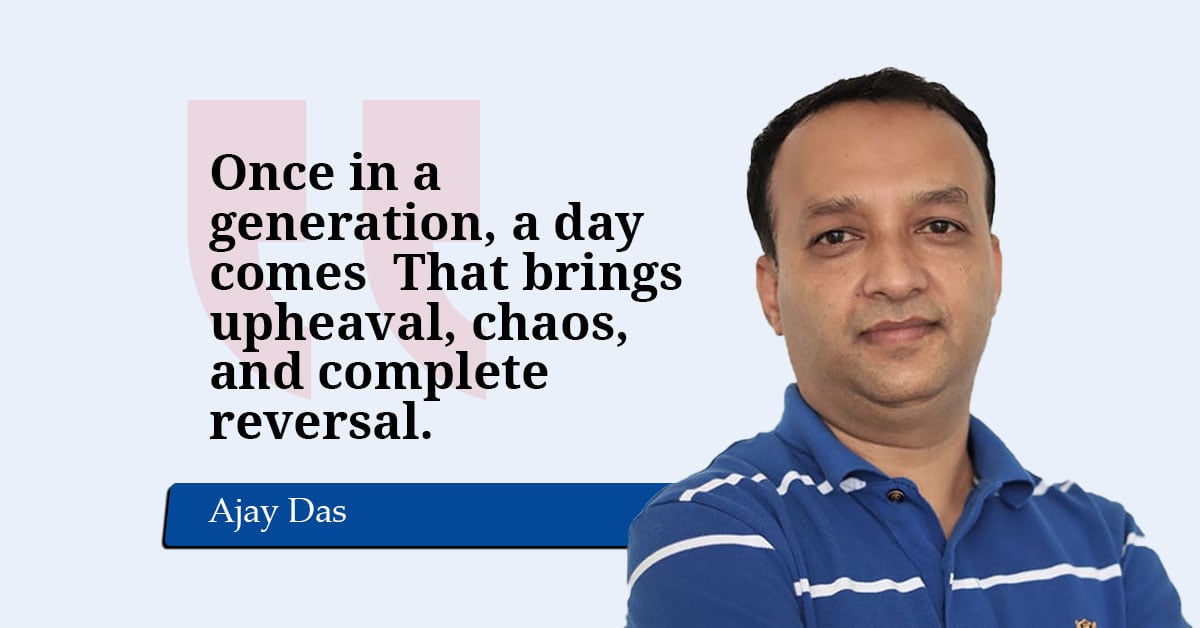

KATHMANDU: Nepal is mourning today. At least 19 young members of Gen Z were killed yesterday during protests across the country’s major cities. Dozens more were injured in violent clashes with government forces. The brutal crackdown on unarmed citizens is nothing short of shocking. Their lives were taken simply for raising their voices, a grim reminder of the urgent crisis Nepal faces today.
These young people were simply demanding an end to systemic corruption, mis-governance, and a call for accountability. Tragically, it took a catastrophic turn. The protests were not merely about a ban on social media platforms, as some international media reported, they were about kleptocracy, mis-governance, clientelism and the exploitation of state resources by a select few.
Power is increasingly concentrated in the hands of a tiny elite and their associates, who continue to secure multiple opportunities regardless of competence. Yesterday’s protests were a clear demand for justice and a life with dignity, a call to end systemic corruption and create an environment where this country is truly livable, especially for the Gen Z generation. Only Gen Z can make this country truly livable. They will spend the next forty to fifty years in Nepal and have no choice but to confront its bad governance and those in power.
Gen Z is deeply frustrated with the arrogance and lifestyles of overbearing kleptocrats – politicians, government officials, their associates, and relatives – who have long held power while continuously exploiting state resources. The youth have been raising their voices on social media, but their calls have been ignored by these haughty rulers, who rarely listen to the concerns of the younger generation.
The generational gap is glaring. Parents of Gen Z pay taxes, yet rampant corruption ensures that only a handful of elites enjoy a lavish life. Meanwhile, ordinary citizens face humiliation, demoralization, and inefficiency when accessing public services or traveling through airports to and from Gulf countries. Their children see little future in the country. With no visible reforms or opportunities, many feel compelled to leave Nepal after completing their higher secondary education.
As the cult of ‘leader-rule’ flourished and amid growing influence of syndicate politics, it was only a matter of time before the streets answered with an uprising. And it answered yesterday. It has become a now-or-never moment for the people to hold corrupt leaders accountable, leaders who have been exploiting state resources for decades. The problem goes beyond nepotism or incompetence. Nepal is now facing a more dangerous form of corruption: neo-kleptocracy. Today’s elites know how to take resources under the cover of legality, manipulation of policies, keeping ordinary citizens dependent and powerless.
Unlike old-fashioned corruption, which was obvious, neo-kleptocracy is hidden, systemic, and self-protecting. People without money or political connections struggle with a confusing service delivery system, facing delays, harassment, and humiliation at every step.
This growing disconnect and discontent between the state and its citizens has created fertile ground for civic unrest. Nepal’s Gen Z, digital natives untroubled by hierarchical and party loyalties, have emerged as a visible expression of this frustration.
Protests and decentralized civic actions are no longer led by traditional leaders or political parties; instead, young Nepalis coordinate digitally, amplify their voices online, and demand accountability in real time. The ‘keyboard warriors” activism is not just against specific policies; it is a challenge to a system that rewards privilege over merit and treats citizens as mere service-seekers.
The irony is clear: while the state claims to serve the people, it actively creates exclusion. From high-level appointments, contracts to local service delivery, merit is secondary to connections to leaders and power centers. Access to opportunities, access to public goods, or even basic services often depends on bribes, favours, or political connections. For those outside these circles, every interaction with the political leaders and bureaucracy reinforces that money and connections matter more than talent, effort, or civic contribution. Over time, this breeds cynicism, erodes trust, and normalizes humiliation as a part of daily life for ordinary citizens.
But the current response in the streets is more than anger; it is an awakening. The rise of digitally coordinated protests and citizen journalism show a new civic awareness. Nepalis are beginning to demand transparency, accountability, inclusive governance. These movements signal that while corruption and nepotism are entrenched, the desire for change is growing and no amount of maneuvering can suppress it.
Despite yesterday’s mayhem, the rulers have yet to admit their wrongdoings and mishandling of the protests, let alone offer a public apology. They continue to treat the people like naive and underestimating their judgment. Gen Z has had no confidence in the leaders for a long time, just as older generations have tolerated these corrupt and inept leaders for decades. With the loss of their fellow protestors, their trust in the state’s institutions has been completely shattered.
Moving forward, Gen Z should be mindful that the government might use tactics of exhaustion and confusion under the guise of negotiation, which could dilute the core agenda. In times like these, manipulators often exploit the situation with populist moves and crowd-pleasing tricks. In the resulting chaos, the most unscrupulous tend to dominate, because opportunists are never in short supply in our country.
I hope this will be the final people’s movement to end the era of corrupt and incompetent old guards, as the poet Gopal Prasad Rimal wrote:
Once in a generation, a day comes
That brings upheaval, chaos, and complete reversal.